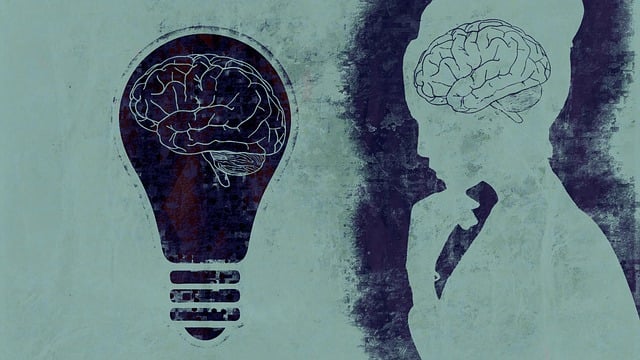Emotion regulation is a core skill for managing mental health, especially for individuals with ODD in Wheat Ridge therapy settings. By teaching techniques to recognize and control emotions, therapists help patients overcome emotional challenges, reduce impulsive behaviors, and manage conflicts. Key components include Social Skills Training, Self-Care Practices, Burnout Prevention, Stress Management Workshops, and a Mental Wellness Podcast Series. These evidence-based methods empower individuals to identify triggers, modify responses, and adopt healthier coping strategies for long-term mental wellness. Effective emotion regulation techniques are vital for ODD therapy in Wheat Ridge, fostering improved relationships, academic performance, and resilience in daily life.
Emotion regulation techniques are essential tools for managing and understanding one’s feelings, especially for individuals with conditions like Oppositional Defiant Disorder (ODD). This article explores the significance of emotion regulation in ODD treatment, introducing Wheat Ridge Oppositional Defiance Disorder Therapy as a proven approach. We delve into various techniques taught to help individuals effectively manage their emotions, discussing their implementation and real-life benefits. By understanding these strategies, parents, educators, and therapists can foster healthier emotional responses.
- Understanding Emotion Regulation and its Significance
- Wheat Ridge Oppositional Defiance Disorder Therapy: An Approach
- Techniques for Teaching Effective Emotion Regulation
- Implementation and Benefits in Real-Life Settings
Understanding Emotion Regulation and its Significance

Emotion regulation is a vital skill that enables individuals to manage and understand their feelings effectively. It plays a significant role in mental health and overall well-being, especially for those dealing with conditions like Oppositional Defiance Disorder (ODD) in Wheat Ridge therapy settings. ODD often presents challenges in emotional control, leading to impulsive behaviors and frequent conflicts. By teaching emotion regulation techniques, therapists can empower individuals to navigate their emotions constructively.
This process involves recognizing and understanding feelings, learning to respond rather than reacting impulsively, and adopting healthy coping strategies. Social Skills Training, a key component of Wheat Ridge therapy, focuses on enhancing emotional intelligence and interpersonal interactions. Additionally, Self-Care Practices and Burnout Prevention techniques are essential tools to help individuals manage stress and regulate emotions in their daily lives.
Wheat Ridge Oppositional Defiance Disorder Therapy: An Approach

Wheat Ridge Oppositional Defiance Disorder (ODD) Therapy offers a structured and supportive environment to help individuals manage their emotions effectively. This approach is particularly tailored for those facing ODD, focusing on challenging and transforming negative behaviors and attitudes. By integrating various evidence-based techniques, therapists facilitate self-awareness exercises that empower clients to recognize and understand their feelings. Through these practices, individuals learn to identify triggers, modify responses, and adopt healthier coping strategies.
The therapy also incorporates Stress Management Workshops and Mental Wellness Podcast Series production as complementary tools. These resources teach valuable skills for stress reduction, relaxation, and emotional regulation. Additionally, participating in workshops and listening to podcasts can foster a sense of community and provide ongoing support, reinforcing the techniques learned during individual sessions. Such integrated care ensures comprehensive addressing of ODD symptoms, promoting long-term mental wellness.
Techniques for Teaching Effective Emotion Regulation

Teaching effective emotion regulation techniques is a crucial aspect of mental health education programs design, particularly for individuals dealing with oppositional defiance disorder (ODD) in Wheat Ridge. One powerful approach involves helping students understand and acknowledge their emotions. This can be achieved through mindfulness exercises that encourage them to observe their feelings without judgment, fostering self-awareness. By promoting emotional intelligence, therapists can empower students to manage intense emotions and prevent behaviors associated with ODD.
Additionally, cognitive behavioral therapy (CBT) techniques offer practical tools for emotion regulation. CBT helps individuals identify negative thought patterns and replace them with more adaptive ones. This process enables better coping strategies, enhancing their ability to navigate challenging situations and reduce the impact of strong emotions. Incorporating depression prevention measures alongside these techniques can further support students in building resilience and maintaining a positive emotional state.
Implementation and Benefits in Real-Life Settings

The implementation of emotion regulation techniques in real-life settings, such as Wheat Ridge Oppositional Defiance Disorder (ODD) Therapy, offers a transformative approach to helping individuals manage their emotions effectively. These strategies are not just theoretical; they empower clients with practical tools to navigate challenging situations and improve overall well-being. Through structured therapy sessions, patients learn coping skills development that enables them to respond rather than react to emotional triggers. Empathy building strategies play a crucial role here, fostering understanding and connection between the therapist and client, which is essential for successful regulation.
Self-awareness exercises are also integrated into this process, allowing individuals to recognize and label their emotions accurately. This heightened self-awareness serves as a foundation for developing more adaptive behavioral responses. By mastering these techniques, clients gain better control over their emotional reactions, leading to improved relationships, academic performance, and overall mental health. The benefits extend beyond therapy sessions, fostering resilience in various aspects of daily life.
Emotion regulation is a vital skill, especially in managing conditions like Oppositional Defiance Disorder. The Wheat Ridge Oppositional Defiance Disorder Therapy approach offers a unique and effective method, as demonstrated by its implementation in various real-life settings. By teaching individuals, particularly children, to recognize and control their emotions, this therapy empowers them to make better decisions and improve relationships. With the right techniques, emotion regulation can be a game-changer, fostering a more balanced and positive lifestyle.














